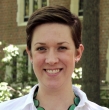Projects for Peace (students)
Campus Deadline: 12:00 pm (noon) EST on January 23, 2025
Created in 2007 by Kathryn Wasserman Davis (Wellesley College ‘28), the Projects for Peace program offers undergraduates and graduating seniors funding to design a grassroots project for the summer of 2024—anywhere in the world—that promotes peace and addresses the root causes of conflict among parties. Projects should demonstrate the initiative, innovation, and creativity to create a unique project focused on maintaining peace and promoting conflict resolution. Projects should be building blocks for a sustainable peace. They should demonstrate understanding of the local context (that this the community where the project is proposed), engage the local community (collaborate with community partners), and be feasible (given the time and resources available, the skills and experience of the proposer(s) of the project, and the collaboration of local community partners). Projects may employ innovative techniques for engaging project participants in ways that focus on conflict resolution, reconciliation, building understanding and breaking down barriers that cause conflict, and finding ways to resolve conflict and maintain peace. Projects will be selected for funding at $10,000 each. [The Muse offers helpful questions, here, that you might like to consider as you're developing a proposal.]
All Wellesley College candidates for the Projects for Peace program must first apply for Wellesley's nomination. Wellesley may nominate one project each year, plus one alternate project, to go forward to the national competition.
Hear what Kathryn Wasserman Davis '28 has to say about the Projects for Peace!
Application Planning
Timeline overview for application process:
-
Summer and fall before applying:
-
Learn more about the Projects for Peace via their website.
-
Develop your proposal. What challenges might your project face and how might you plan to meet them? Check out these tips on the Projects for Peace website!
-
From whom might you seek advice, in addition to the folks in the Fellowships office? Have you been working with the Civic Engagement team? Did you take a relevant class or do a relevant internship or do you know someone from the place where you’d like to carry out your project? If so, talk with those folks: it’s never too early to cultivate relationships or get input on your ideas!
-
-
October 28, 2024: Optional Priority Draft Deadline for undergraduate fellowships and scholarships - submit drafts by this deadline via the form here to guarantee a draft review appointment before the campus deadline.
-
January 23, 2025 by noon EST time: Student project proposals and budgets should be submitted via this form (see the application checklist above).
-
Mid-February: Student proposals will be submitted electronically by their campus liaison to the Projects for Peace.
-
Mid-March: Final decisions rendered by the Projects for Peace and announced by email to campus officials.
-
Late-March: Last day for submission of Project Funding Agreements for school and all students due to the Projects for Peace office.
-
April: Any necessary alternate recipients are selected; grant funds are distributed to recipients.
-
Summer: Projects completed.
-
Early September: Final reports are due to the Projects for Peace office.
Eligibility
Who is eligible?
-
All students at a Davis United World College Scholars Program partner school (including Wellesley)
-
Undergraduate students (including graduating seniors proposing projects for the summer after graduation)
-
Groups of students at Wellesley, as well as individuals
What makes a strong application for this fellowship?
- Projects for Peace seeks projects that are student-led, community-engaged, and which maintain a focus on peacebuilding. As a baseline, we expect proposals to include the following four sections and to address these questions (although not necessarily in this order).
-
Project summary: What issue(s) will be addressed? What approach(es) will be used? With whom will the grantee(s) work? What is the rationale for these choices?
-
Background: What is your working definition of peace? What preceded this proposal in terms of personal experience, forming relationships, developing knowledge, and other preparation?
-
Implementation: What plans have been made for use of funds, use of time, and contingencies?
-
Anticipated Results: What are the potential short and long-term outcomes for participants, community collaborators, and grantee(s)? How will progress be monitored? How will the project contribute to peace?
-
- Outstanding proposals integrate one or more additional elements, for example: An innovative approach to the issue(s). Appreciation for and sensitivity to the context, communities, and/or cultures where the project takes place. Consideration of the dilemmas, challenges, or conflicts that may underlie the targeted issues or selected approaches. Consideration of sustainability and/or scalability of the approach. Critical self-awareness by the grantee.
How do I apply?
-
All Wellesley College candidates for the Projects for Peace program must first apply for Wellesley's nomination. Wellesley may nominate one project each year, plus one alternate project, to go forward to the national competition.
-
Regardless of their citizenship, applicants must adhere to Wellesley's travel policy for students and graduates. (Questions may be referred to fellowships@wellesley.edu. We're glad to talk over any concerns you may have.)
-
Interested Wellesley applicants are warmly encouraged to book a Fellowships advising appointment with Kate Dailinger or Caitlin Roberts-Donovan, through Handshake. (Cannot find an available appointment? Drop by Fellowships Pop-Up Advising: no appointment required; see the Fellowships Events listings in Handshake for details.)
Application checklist
Please submit these materials via this form:
-
A two page written statement describing the project (who, what, where, how), including expected outcomes and prospects for future impact.
-
Proposal should also include the name of the institution, names of all student participants, title of project, dates of the project, country where the project will be performed, and pre-approval of all involved parties and organizations involved in the project.
-
See the Projects for Peace FAQs for more about the kinds of projects sought.
-
-
Any correspondence that demonstrates pre-approval of involved parties or organizations in the local community (i.e. letters, emails, etc.)
-
A one page budget outline. (Find the official budget template here.)
-
A cv or resume
-
An unofficial copy of your Wellesley transcript (the version you can access online is fine)
-
Wellesley Fellowships office signature document (please print, sign & date this form, then submit a scanned pdf or other image of the signed document along with your application materials)







